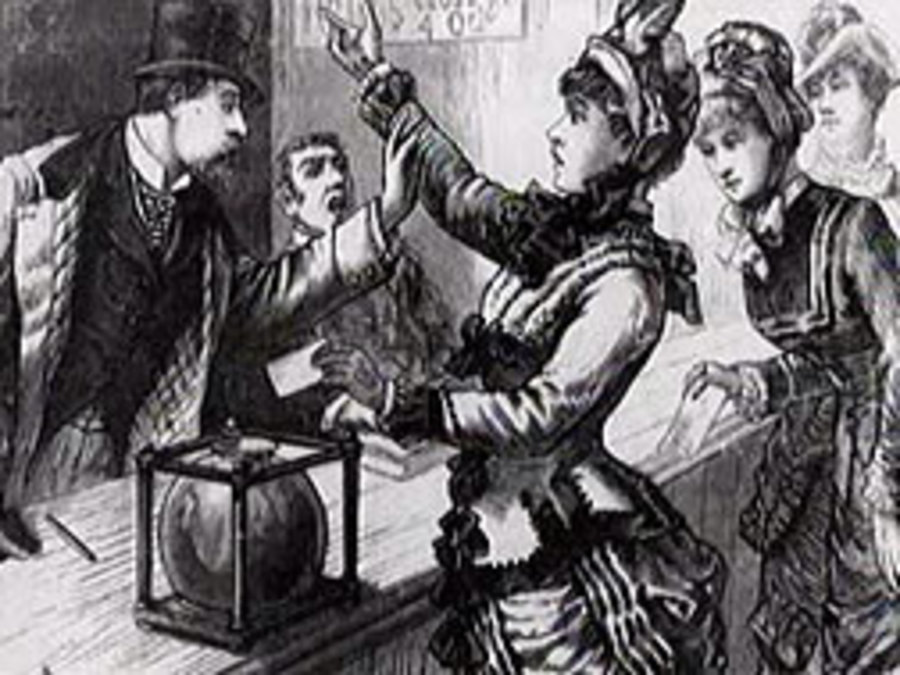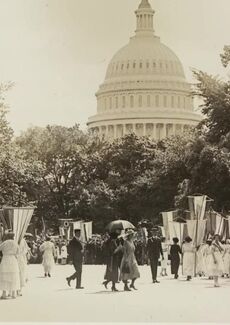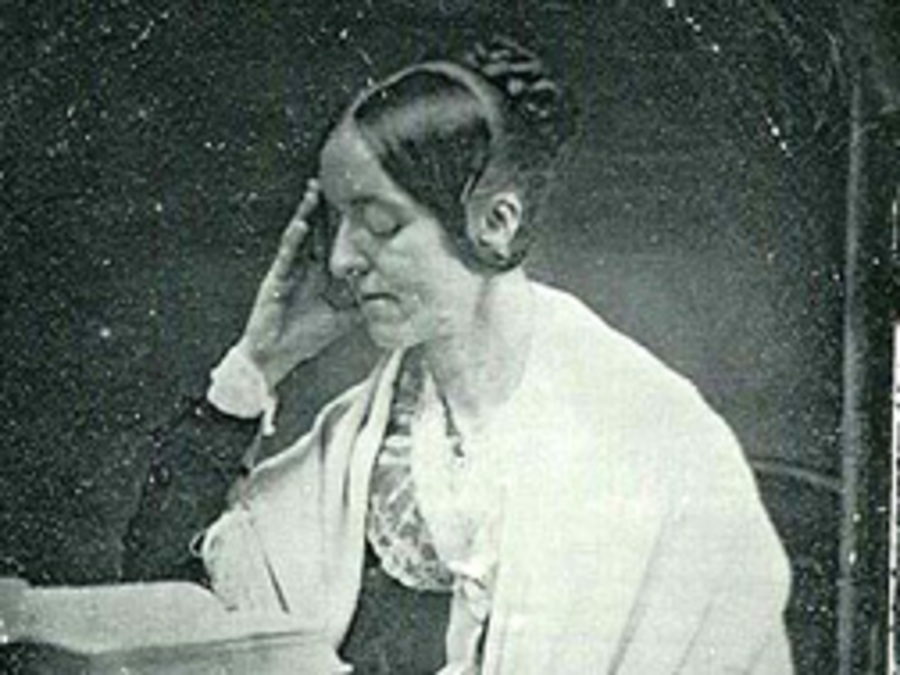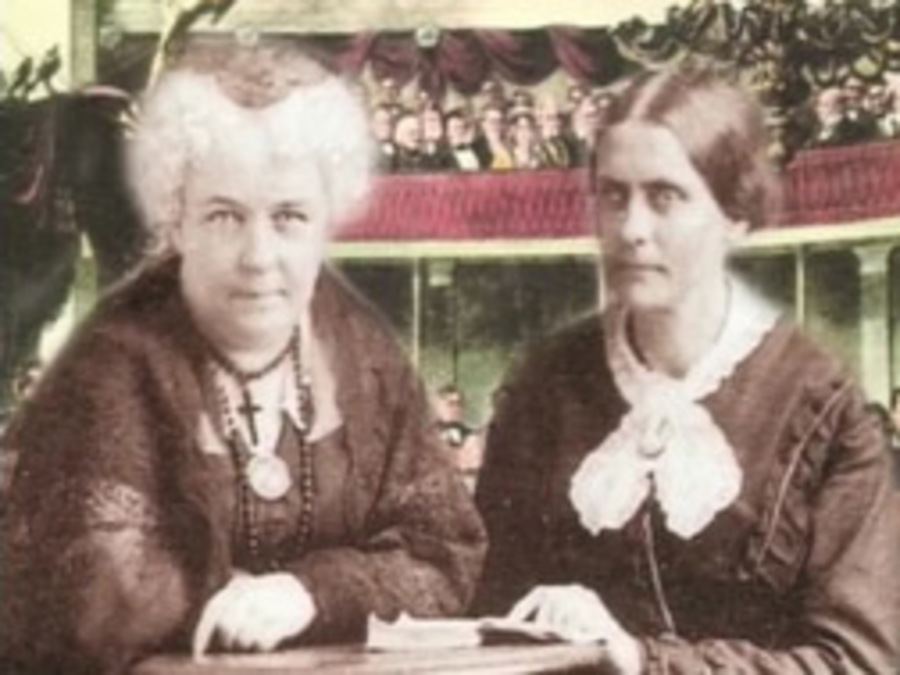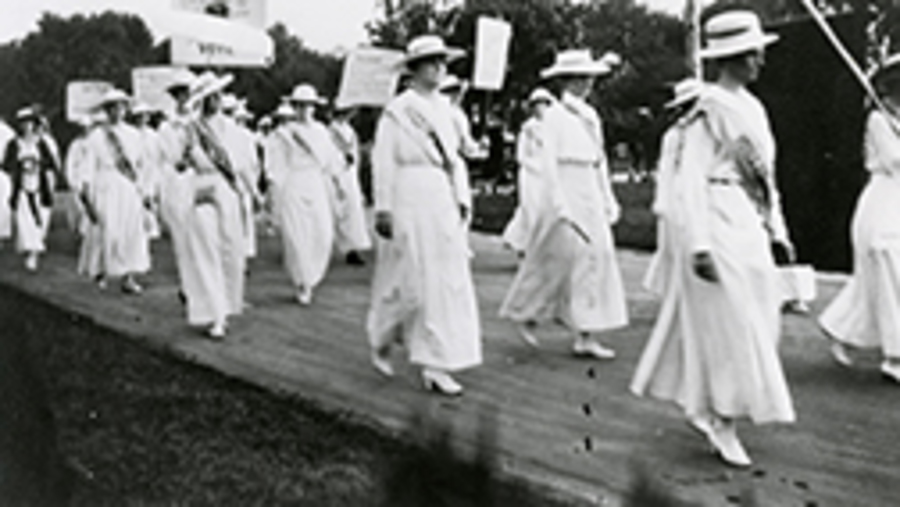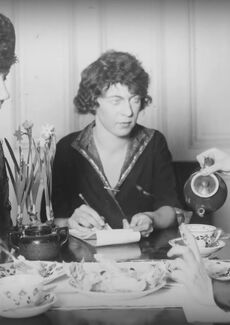 Try these videos to get started. Must be on campus or login with your COM account for off campus access.
Try these videos to get started. Must be on campus or login with your COM account for off campus access.
Want more on finding media? Try Articles & Media.
-
Amendment 19: Women's Right to Vote (9:08)
DESCRIPTION
The 19th Amendment (1920) is the result of a long struggle stemming from the Jackson administration to provide voting equality between the sexes.
-
Dr. Colleen Shogan Discusses The Women’s Suffrage Movement And The 19th Amendment (9:00)
Matt Sinnott interviews Dr. Colleen Shogan, who is the Vice Chair of the Women's Suffrage Centennial Commission and the Senior Vice President at the White House Historical Association on the 100th anniversary of the 19th Amendment adoption.
-
The Fight for Women's Rights (55:00)
oin Ann Curry as two women search for friends and colleagues who forged a path for equal rights. One of the first female commercial pilots wants to thank her mentor, and an advocate hopes to find the woman who inspired her to join a movement.
-
The Margaret Fuller Legacy: America's First Feminist, 1810–1850 (40:01)
In Margaret Fuller’s Memoirs she wrote, “I remember how, as a little child, I had stopped myself one day on the stairs, and asked ‘How came I here? How is it that I seem to be this Margaret Fuller? What does it mean? What shall I do about it?’” During her brief life of 40 years, Fuller made every effort to answer those questions, supported and documented by her inquiring nature and writings, all to fulfill American women’s growing intellectual and spiritual needs. In this program hosted by James H. Bride, distinguished educators Megan Marshall (author of the 2014 Pulitzer Prize-winning biography, Margaret Fuller: A New American Life), Joan Von Mehren, Peter McFarland, and Joel Myerson contribute to the first comprehensive overview of Margaret Fuller’s life, times, and achievements. The Margaret Fuller Legacy examines her Transcendental period as editor of the first literary magazine in America, The Dial, along with her professional and personal relationships with Ralph Waldo Emerson and Henry David Thoreau. Additionally, the video brings to light her Conversations—the first successful women’s studies initiative in America—in Boston and at Brook Farm and her role as the first American female journalist and foreign reporter with the New-York Tribune. The program concludes at the Fuller monument at Mount Auburn Cemetery, Cambridge, Massachusetts.
-
-
The Oratory of Women's Suffrage (1:10:04)
This video documentary re-creates the speeches of leading suffragettes whose impassioned words shaped the women’s movement during its inception in the late 19th century.
-
Perfect 36: When Women Won the Vote (25:36)
DESCRIPTION
In July of 1920, all eyes were on Nashville, Tennessee as anti- and pro-suffragists fought for their vision of a socially evolving United States. This program chronicles the dramatic vote to ratify the 19th amendment granting women the right to vote, and the years of debate about women's suffrage that preceded it. On July 17, 1920, Carrie Chapman Catt, President of the National American Woman Suffrage Association, arrived to spend a few days in Nashville. She was traveling on the heels of Tennessee Governor A.H. Roberts' announcement of a special session of the state legislature, called at the urging of President Woodrow Wilson. Catt's few days dragged into weeks at her headquarters in the Hermitage Hotel, where pro- and anti- suffragists continued to clash in what came to be known as the "War of the Roses." On August 18, 1920, the House convened. After two consecutive 48-48 outcomes to table the resolution, it was put to a vote. At the last minute, 24-year-old freshman representative Harry Burn recalled a letter from his mother received that morning, urging him to, "be a good boy" and grant women the right to vote. In spite of wearing a red rose, Burn swung his vote, making Tennessee the deciding 36th state to enable passage of the 19th Amendment.
-
Women's Suffrage (13:00)
In which John Green teaches you about American women in the Progressive Era and, well, the progress they made. So the big deal is, of course, the right to vote women gained when the 19th amendment was passed and ratified. But women made a lot of other gains in the 30 years between 1890 and 1920. More women joined the workforce, they acquired lots of other legal rights related to property, and they also became key consumers in the industrial economy. Women also continued to play a vital role in reform movements. Sadly, they got Prohibition enacted in the US, but they did a lot of good stuff, too. The field of social work emerged as women like Jane Addams created settlement houses to assist immigrants in their integration into the United States. Women also began to work to make birth control widely available. You'll learn about famous reformers and activists like Alice Paul, Margaret Sanger, and Emma Goldman, among others.
![]() Try these videos to get started. Must be on campus or login with your COM account for off campus access.
Try these videos to get started. Must be on campus or login with your COM account for off campus access.